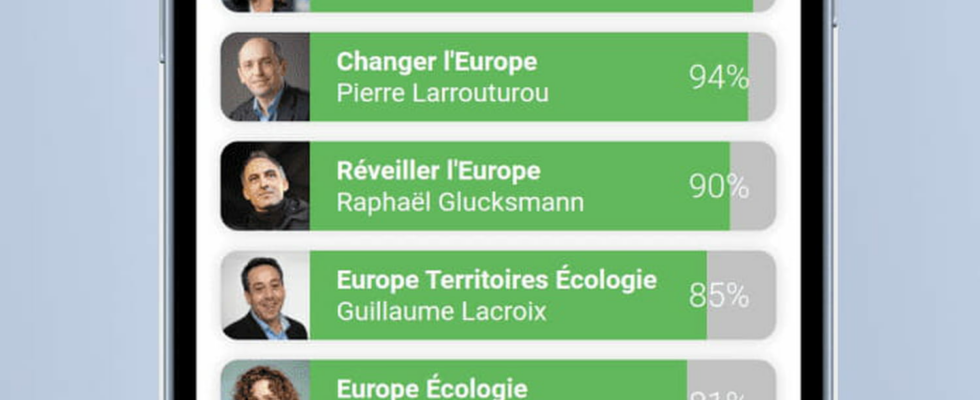The European elections are approaching and you may not yet know who to vote for. Here is a test to help you find out which candidate is closest to you.
The European elections are approaching: on June 9, the French are called to vote to renew the MEPs from France who sit in the European Parliament. A vote which historically does not greatly attract voters to the polling stations, despite the considerable stakes involved in this election: MEPs have considerable prerogatives and will decide the political direction of the European Union in the coming years .
The candidates are engaged in an accelerating campaign and several debates have been organized between the main leaders of the list. But specifically European issues often take a back seat and it is not so easy to understand what each party intends to do or vote in Parliament, with its MEPs. To help you, here is a very practical simulator which allows you, by answering several specific questions, to discover which political party you are closest to.
This tool was created by VoteFinder.eu, a volunteer site whose mission is to raise awareness of the work of MEPs and to get the French to take more interest in these European elections.
Vote for or against
How does it work, practically? Quite simply by giving your opinion, in a few minutes, on a significant number of proposed laws actually voted on in the European Parliament between 2019 and 2024. Your answers are compared to those of real elected officials. “To facilitate understanding, all proposed laws have been popularized and summarized by experts. The complete text of the law is available on each sheet,” specifies VoteFinder. Vote “For” or “Against” for each proposal. Click “Summary” to learn more if a proposal seems too vague. The more you vote, the more precise the suggestion will be.
This project is led by a group of “political science enthusiasts with varied profiles (engineers, alumni of Science Po, ENS and UNESCO)” with the aim of “democratic transparency”.
Proof that this educational work is important: according to an Elabe survey of May 18, only 42% of those registered on the electoral lists say they are certain to vote in the European elections and 52% of French people say they are interested in the European elections.
